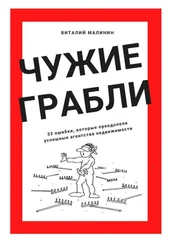[67]Nick Haslam, Paul Bain, Lauren Douge, Max Lee, and Brock Bastian, «More Human Than You: Attributing Humanness to Self and Others», Journal of Personality and Social Psychology, 89, pp. 937–950.
[68]Gordon Allport (1954/1979), The Nature of Prejudice. Reading, MA: Addison-Wesley, pp. 13–14.
[69]Jeffrey W. Sherman, Steven J. Stroessner, Frederica R. Conrey, and Omar A. Azam (2005), «Prejudice and Stereotype Maintenance Processes: Attention, Attribution, and Individuation», Journal of Personality and Social Psychology, 89, pp. 607–622.
[70]Christian S. Crandall and Amy Eshelman (2003), «A Justification-Suppression Model of the Expression and Experience of Prejudice», Psychological Bulletin, 129, pp. 414–446, цитата, с. 425. См. также: Benoit Monin and Dale T. Miller (2001), «Moral Credentials and the Expression of Prejudice», Journal of Personality and Social Psychology, 81, pp. 33–43. В их экспериментах, если люди считали, что их моральная репутация непредубежденных людей не оспаривается (для этого им давали возможность протестовать против грубых сексистских высказываний), они чувствовали оправданным свое решение проголосовать за наем на работу мужчины (а не женщины) на работу, которая согласно распространенным стереотипам является мужской.
[71]См. пример межрасового эксперимента: Ronald W. Rogers and Steven Prentice-Dunn (1981), «Deindividuation and Anger-Mediated Interracial Aggression: Unmasking Regressive Racism», Journal of Personality and Social Psychology, 4, pp. 63–73. Об англоговорящих и франкоговорящих канадцах см.: James R. Meindl and Melvin J. Lerner (1985), «Exacerbation of Extreme Responses to an Out Group», Journal of Personality and Social Psychology, 47, pp. 71–84. Об исследованиях поведения по отношению к евреям и геям см.: Steven Fein and Steven J. Spencer (1997), «Prejudice as Self-Image Maintenance: Affirming the Self through Derogating Others:, Journal of Personality and Social Psychology, 73, pp. 31–44.
[72]Paul Jacobs, Saul Landau, and Eve Pell (1971), To Serve the Devil (Vol. 2: Colonials and Sojourners). New York: Vintage Books. Цитата Charles Crocker c. 81.
[73]Albert Speer (1970), Inside the Third Reich: Memoirs. New York: Simon & Schuster, p. 291.
[74]Doris Kearns Goodwin (2005), Team of Rivals: The Political Genius of Abraham Lincoln. New York: Simon & Schuster.
[75]Jeb Stuart Magruder (1974), An American Life: One Man's Road to Watergate. New York: Atheneum, p. 348.
[76]Цитируется в: George Plimpton (1997), Truman Capote. New York: Anchor/ Doubleday, p. 306. Мы принимаем версию этой истории Видала, поскольку он всегда был готов обсуждать обе темы: и политику, и бисексуальность, поэтому у него не было мотива, чтобы искажать свои воспоминания.
[77]Anthony G. Greenwald (1980), «The Totalitarian Ego: Fabrication and Revision of Personal History», American Psychologist, 35, pp. 603–618.
[78]Edward Jones and Rika Kohler (1959), «The Effects of Plausibility on the Learning of Controversial Statements», Journal of Abnormal and Social Psychology, 57, pp. 315–320.
[79]См., например, Michael Ross (1989), «Relation of Implicit Theories to the Construction of Personal Histories», Psychological Review, 96, pp. 341–357; Anne E. Wilson and Michael Ross (2001), «From Chump to Champ: People's Appraisals of Their Earlier and Present Selves», Journal of Personality and Social Psychology, 80, pp. 572–584; and Michael Ross and Anne E. Wilson (2003), «Autobiographical Memory and Conceptions of Self: Getting Better All the Time», Current Directions in Psychological Science, 12, pp. 66–69.
[80]Marcia K. Johnson, Shahin Hashtroudi, and D. Stephen Lindsay (1993), «Source Monitoring», Psychological Bulletin, 114, pp. 3-28; Karen J. Mitchell and Marcia K. Johnson (2000), «Source Monitoring: Attributing Mental Experiences», in E. Tulving & F. I. M. Craik (eds.), The Oxford Handbook of Memory. New York: Oxford University Press.
[81]Mary McCarthy (1957), Memories of a Catholic Girlhood. San Diego: Harcourt Brace & Co. «…а в руках у него была бабочка», с. 80; «Я неожиданно вспомнила», с. 82; «Я боюсь, что, скорее всего…», с. 83.
[82]Barbara Tversky and Elizabeth J. Marsh (2000), «Biased Retellings of Events Yield Biased Memories», Cognitive Psychology, 40, pp. 1 -38; см. также: Elizabeth J. Marsh and Barbara Tversky (2004), «Spinning the Stories of Our Lives», Applied Cognitive Psychology, pp. 491–503.
[83]Brooke C. Feeney and Jude Cassidy (2003), «Reconstructive Memory Related to Adolescent-Parent Conflict Interactions: The Influence of Attachment-Related Representations on Immediate Perceptions and Changes in Perceptions over Time», Journal of Personality and Social Psychology, 85, pp. 945–955.
[84]Daniel Offer, Marjorie Kaiz, Kenneth I. Howard, and Emily S. Bennett (2000), «The Altering of Reported Experiences», Journal of the American Academy of Child and Adolescent Psychiatry, 39, pp. 735–742. Некоторые авторы, также опубликовавшие книгу на эту тему. См.: Daniel Offer, Marjorie Kaiz Offer, and Eric Ostrov, Regular Guys: 34 Years Beyond Adolescence. New York: Kluwer Academic/Plenum.
[85]Об ошибках воспоминаний о сексе см.: Maryanne Garry, Stefanie J. Sharman, Julie Feldman, Gary A. Marlatt, and Elizabeth Loftus (2002), «Examining Memory for Heterosexual College Students' Sexual Experiences Using an Electronic Mail Diary», Health Psychology, 21, pp. 629–634. О голосовании и выборах см.: R.P. Abelson, Elizabeth D. Loftus, and Anthony G. Greenwald (1992), «Attempts to Improve the Accuracy of Self-Reports of Voting», in J.M. Tanur (ed.), Questions About Questions: Inquiries into the Cognitive Bases of Surveys. New York: Russell Sage. См. также: Robert F. Belli, Michael W. Traugott, Margaret Young, and Katherine A. McGonagle (1999), «Reducing Vote Overreporting in Surveys: Social Desirability, Memory Failure, and Source Monitoring», Public Opinion Quarterly, 63, pp. 90-108. Об ошибках памяти относительно жертвования денег на благотворительность, см.: Christopher B. Burt and Jennifer S. Popple (1998), «Memorial Distortions in Donation Data», Journal of Social Psychology, 138, pp. 724–733. Воспоминания студентов об их школьных оценках также искажаются в сторону завышения. См.: Harry P. Bahrick, Lynda К. Hall, and Stephanie A. Berger (1996), «Accuracy and Distortion in Memory for High School Grades», Psychological Science, 7, pp. 265–271.
[86]Lisa K. Libby and Richard P. Eibach (2002), «Looking Back in Time: Self-Concept Change Affects Visual Perspective in Autobiographical Memory», Journal of Personality and Social Psychology, 82, pp. 167–179. См. также: Lisa K. Libby, Richard P. Eibach, and Thomas Gilovich (2005), «Here's Looking at Me: The Effect of Memory Perspective on Assessments of Personal Change», Journal of Personality and Social Psychology, 88, pp. 50–62. Чем более согласованы наши воспоминания о себе в настоящее время, тем они доступнее. См.: Michael Ross (1989), «Relation of Implicit Theories to the Construction of Personal Histories», Psychological Review, 96, pp. 341–357.
Читать дальше












